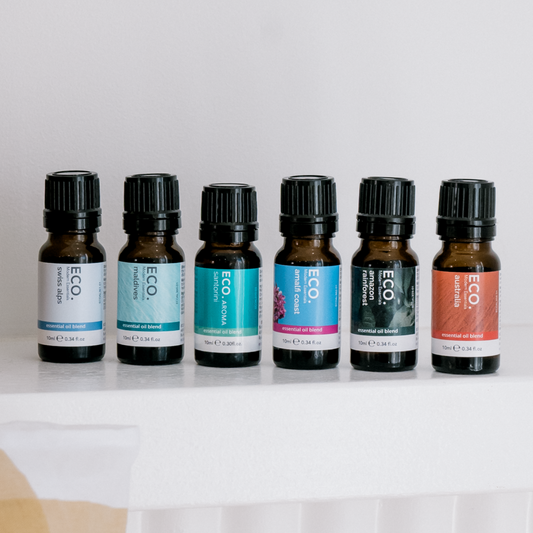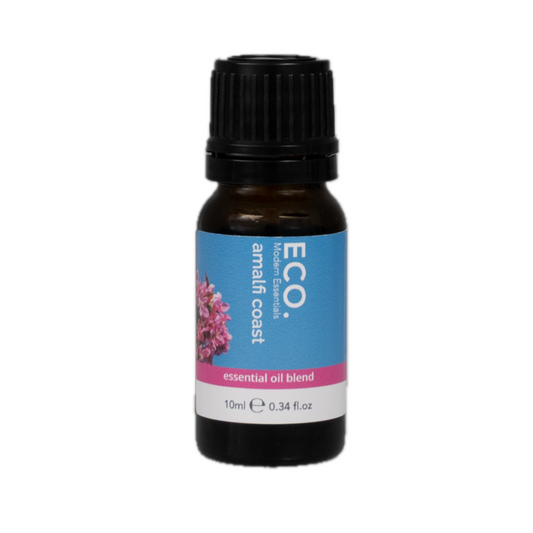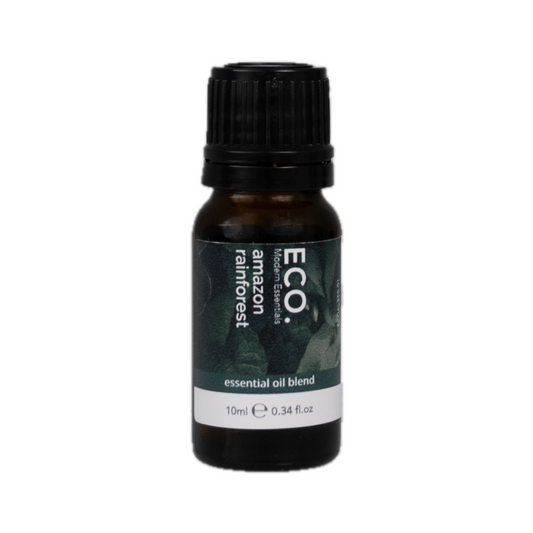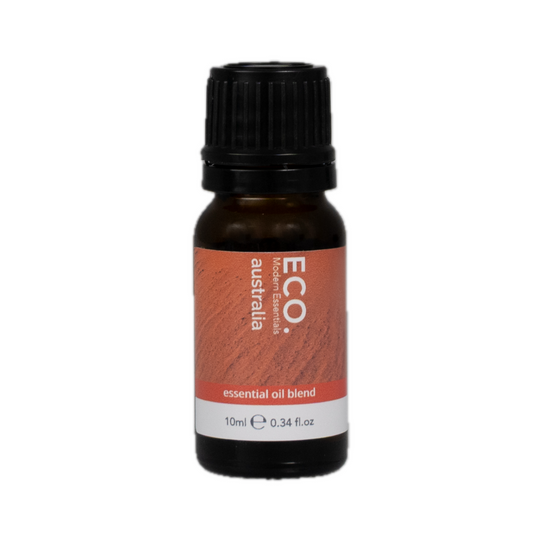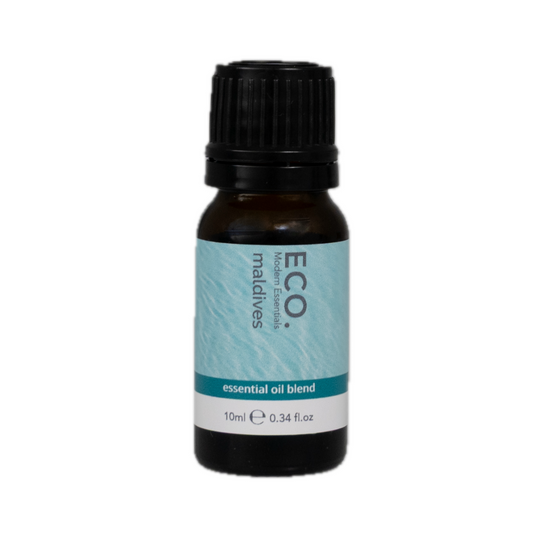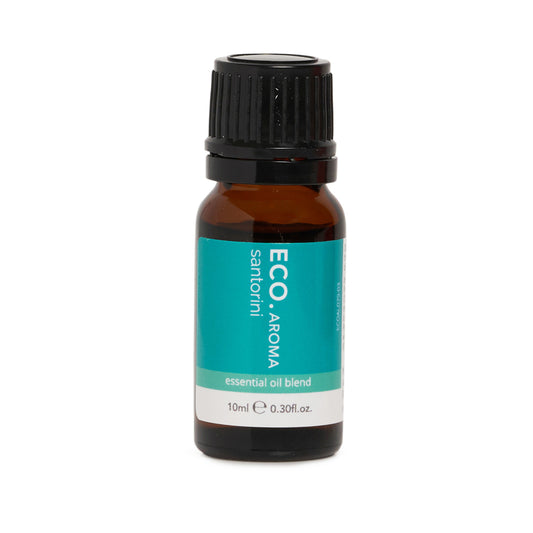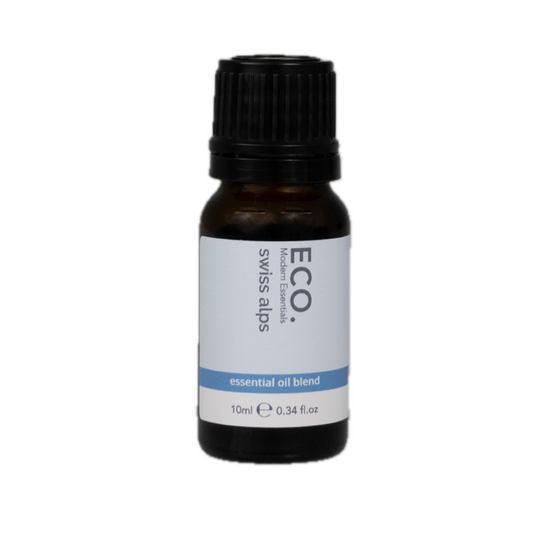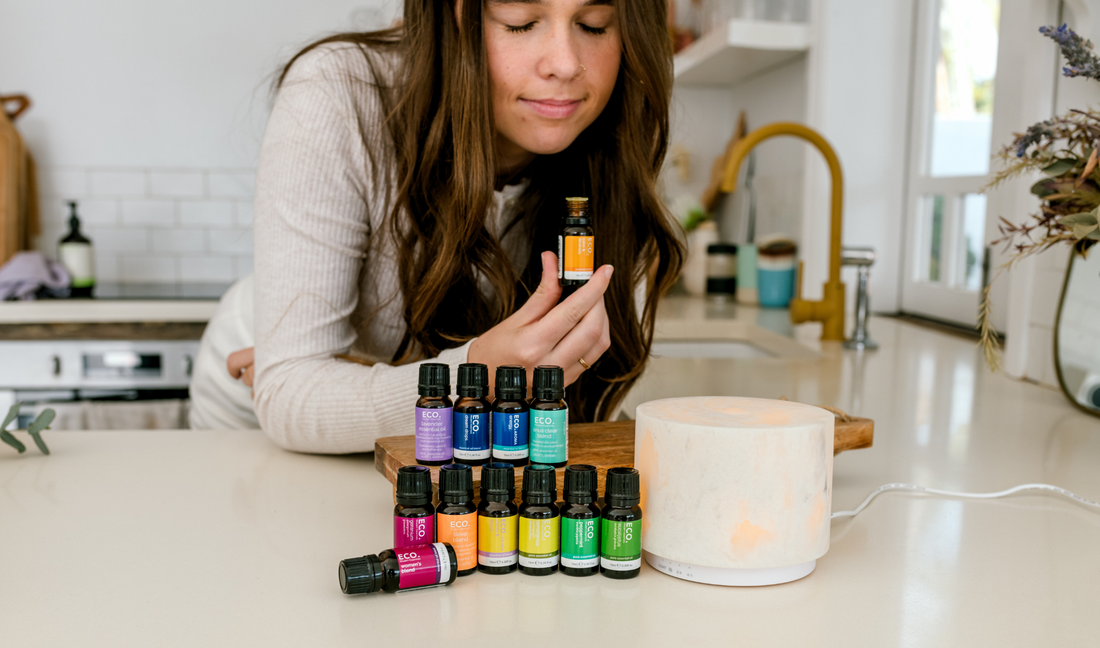
The Power of Aromatherapy: Unlocking Memories and Emotion
Aromatherapy is widely known for its holistic healing benefits, helping to improve sleep, reduce stress, and even support immunity. But its power goes beyond the physical, deeply connecting to our psychological processes, including memory and emotion. To explore the deeper impact of scent on the mind, we asked our aromatherapist Alissa to share her insights.
Transportation through Scent
I place a few drops of fresh Australian Lavender essential oil in my hands. After quickly rubbing them together, I cup my hands close to my nose and take two or three deep inhalations. There is something so sweet and gentle about the scent that it quickly settles my mind. Sometimes, I am transported to a Lavender farm I visited many years ago. I can picture the place so vividly and see the purple flowers. The colour is so intense that the fields almost seem to shimmer.
What scent transports you to another place? Maybe an essential oil reminds you of a beautiful natural setting like a forest. A certain perfume can bring back a treasured memory of spending time with someone special.
Smell has such a magical sense. How can a fragrance transport us to a certain place and time. How can the aroma of an essential oil produce such a profound emotional and healing response?
The Neuroscience behind it…
When we detect a fragrance, the information is transported to several areas in the brain. A region in the frontal cortex allows us to determine what the scent is, even to distinguish one species of rose from another. Another important region for processing scent is the limbic system. The limbic system is one of the more primitive parts of the brain and is involved in memory and emotions. You may have heard about the amygdala and the hippocampus. They are structures within the limbic system.
Amygdala
-Produces emotional responses including fear.
-Involved in the ‘fight or flight’ response.
-Formation of memories and learning.
Hippocampus
- Important in spatial and navigational memory.
-Turning short term memories into long term memories.
Hypothalamus
-Regulates emotional responses.
-Involved in the regulation and release of many hormones which in turn affects how we feel and how our body functions.
The link between the scent receptor nerves to the limbic system explains why scent can produce emotional responses and draw up vivid memories. When a receptor nerve is stimulated by a scent it carries the information to various points in the brain that produce memory and emotion. We learn to associate the scent with the response so that over time this process becomes quick and fairly unconscious.
A few more Fun Facts for the Budding Anatomists and Biologists Out There.
Nerves that detect scent actually start in your nasal cavity, which means that they are nerves that sit outside of your body.
Olfactory nerves, or scent nerves, are one of the few neurons that can regenerate if damaged. They are replaced about once a month.
They can be damaged due to head trauma or as the result of some illnesses.
The fact that an olfactory nerve can be replaced may speak to the importance of smell in evolutionary and survival terms. Smell is used to detect if food is healthy and safe or rotten and dangerous to eat. It is also thought that we use the subtle scent of another person to determine if they are a good match for us or if they are afraid. Many people report that when they are pregnant their sense of smell increases dramatically. It is thought that this helps the pregnant person detect food and other items that may contain harmful germs, so that they will avoid them, which protects them and the baby.
Scent as a Wellness Tool: Practical Aromatherapy Tips
Scent can Improve Memory
A study found that students who were exposed to a scent while they were learning new material had better recall if they could smell the same scent during the test.
- Diffuse an uplifting scent like Rosemary, Peppermint or Lemon when you are studying. During your final exams put a drop of the same essential oil on your collar to help keep you focused and to help you recall all those facts.
- Aromatherapy can help those with declining memory by bringing back treasured recollections of the past.
Create links between Scent and Emotions
We know that scent is processed in the limbic system which is related to emotional responses and learning. We can create links between scent and emotion by learning to associate the two together.
- If you want to create a link between relaxation and a particular scent, try meditating while you are diffusing an essential oil in the room. Over time you will learn to associate that scent with the calm feeling you get when you meditate.
- Our favourite picks for this work are Frankincense, Lavender, Sandalwood, Cedarwood and Neroli.
- Neroli’s scent is delicate, so to appreciate it in full it is recommended to use as a perfume rather than in the diffuser.
Scent and Destinations
In the same way that scent produces memory and emotions, we can discover scents that transport us to our favourite destinations. That’s the idea behind the Destinations Collection, a series of essential oil blends inspired by the feeling of being somewhere else. The Swiss Alps Blend is like a breath of crisp mountain air, it’s cool, minty, and refreshing, it instantly transports you to the serene heights of the Alps. The Australia Blend captures the wild freshness of the outback with earthy Tea Tree and zesty Lemon Myrtle, grounding and energising in one revitalising breath.

- Scents can produce powerful memories. Spend some time thinking about your favourite places and remembering holidays with family and friends.
- Are there any scents associated with this place? Maybe there was a market or farm that you visited. Can you find an essential oil that reminds you of that? If you went on a health retreat the instructors may have burned incense or essential oils. Maybe there is a blend that you can copy to recreate the feelings associated with the location.
If you can’t seem to find the right essential oil, be patient. Scent can move us in unexpected ways. That is one reason why Aromatherapy can be such a powerful and healing modality.
Allow the fragrance of essential oils take you on a journey. Who knows where you may land and what you may discover when you get there.


